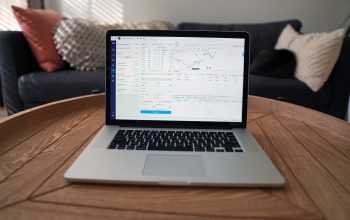If you’re new to stock market trading, you may be wondering how to trade ETFs. ETFs can be traded just like regular stocks, but there are a few things you need to know before getting started.
This article will explain ETFs and how to trade them on the stock market. We’ll also provide some tips for beginners who are just beginning. So if you’re ready to learn more about trading ETFs, keep reading.
What are ETFs, and why trade them on the stock market?
An ETF, or exchange-traded fund, is a type of investment that tracks a group of assets (like a stock or bond index) and trades on a stock exchange. ETFs are popular because they offer the potential for higher returns than traditional investments, and they’re also more flexible and accessible to trade than other types of investments.
When you buy an ETF, you purchase a share of a basket of assets, including stocks, bonds, commodities, or even currencies. The value of your ETF share will rise or fall depending on the performance of the underlying assets. For example, if you own an ETF that tracks the S&P 500 index, your ETF share will go up when the S&P 500 goes up and down when the S&P 500 goes down.
You can trade ETFs on stock exchanges just like regular stocks, and you can buy and sell ETFs using the same account you use to trade stocks. The process is very similar, but there are a few key differences that you need to be aware of.
When you trade an ETF, you’ll need to pay a commission to your broker just like you would for a stock trade. However, ETF commissions are typically much lower than stock commissions. For example, at Fidelity, commissions for ETF trades start at just $4.95 per trade.
Another difference is that you can trade ETFs throughout the day, while you can only trade stocks during regular stock market hours. You can buy and sell ETFs anytime, even when the stock market is closed.
Finally, it’s essential to understand that ETFs are subject to the same risks as stocks, which means they can lose value if the underlying assets decline. However, ETFs can also offer potential tax benefits over traditional investments.
The benefits of trading ETFs
Now that you know a little bit more about ETFs let’s look at some of the benefits of trading them on the stock market.
One of the most significant benefits of ETFs is that they offer the potential for higher returns than traditional investments. It is because ETFs are often more volatile than stocks, so they can go up or down in value more quickly. For example, if you invest in an ETF that tracks the S&P 500 index, you could see your investment increase or decrease by several percentage points in a single day.
Another benefit of ETFs is that they’re more flexible and accessible to trade than other types of investments. For example, mutual funds can only be bought and sold once daily at the end of the trading day. If you want to sell your shares, you’ll need to wait until the end of the day.
Tips for trading ETFs successfully
Now that you know what ETFs are and how to trade them on the stock market let’s look at some tips for beginner investors.
- Start with a small investment- When you’re first starting, it’s essential not to risk too much of your capital. It is why starting with a small investment is a good idea. That way, if you lose money, it won’t be a huge loss.
- Diversify your portfolio- When investing in ETFs, it’s essential to diversify your portfolio across different asset classes and sectors. It means you shouldn’t put all your eggs in one basket. For example, if you only invest in ETFs that track the S&P 500 index, you’re taking on more risk than if you diversify your portfolio with other types of investments.
- Use stop-loss orders- A stop-loss order is an order to sell an investment when it reaches a specific price. It is a valuable tool for investors because it can help them limit losses. For example, let’s say you buy an ETF for $100 per share and set a stop-loss order at $90 per share. Your broker will automatically sell your shares if the ETF price falls to $90.







